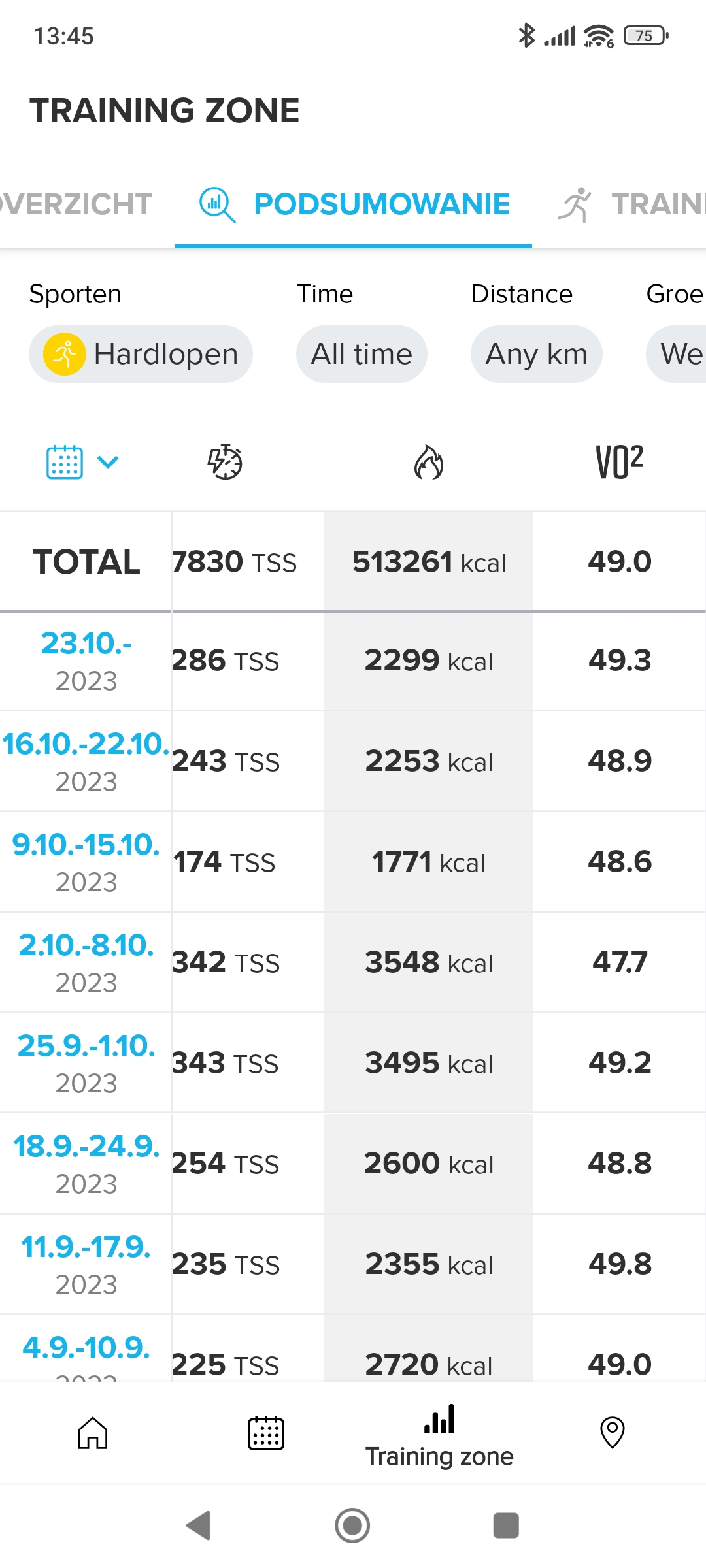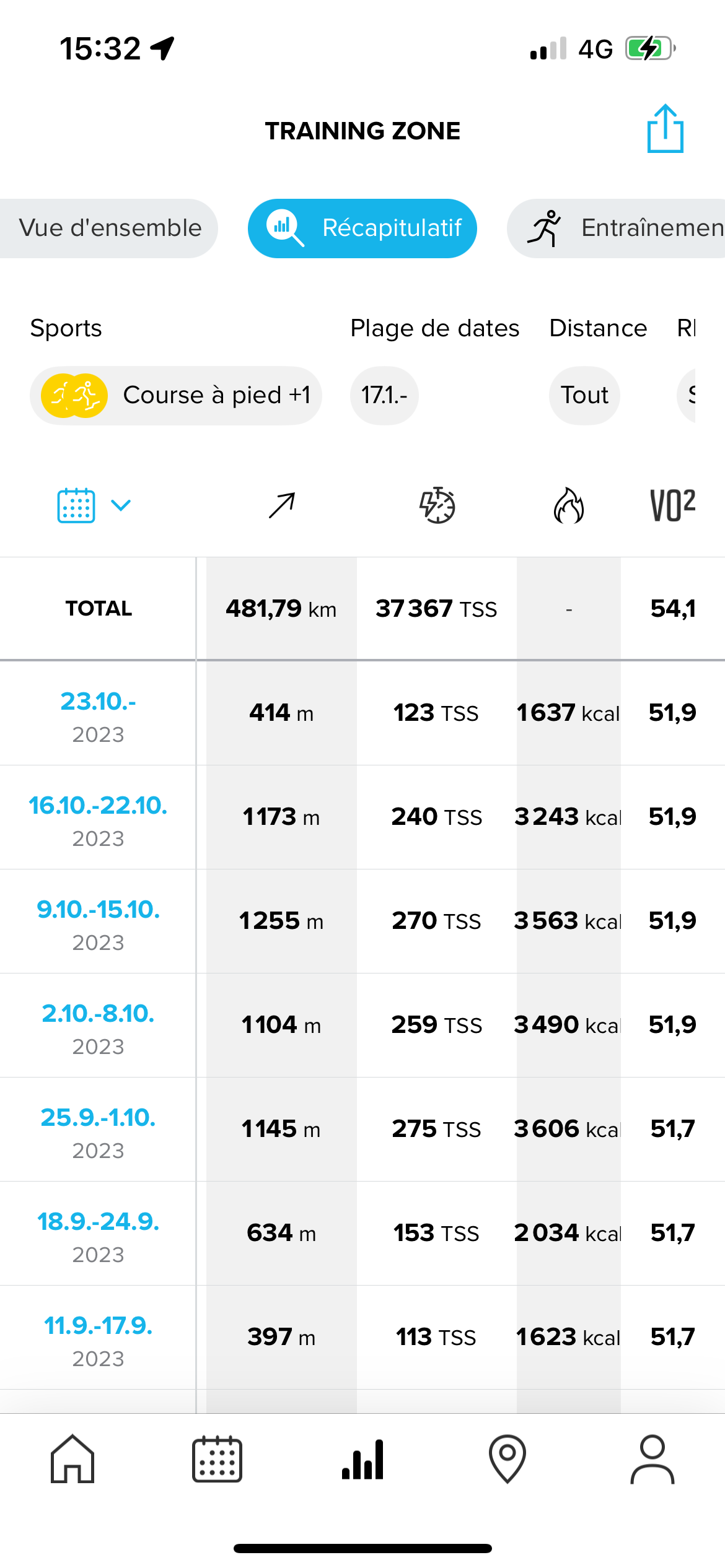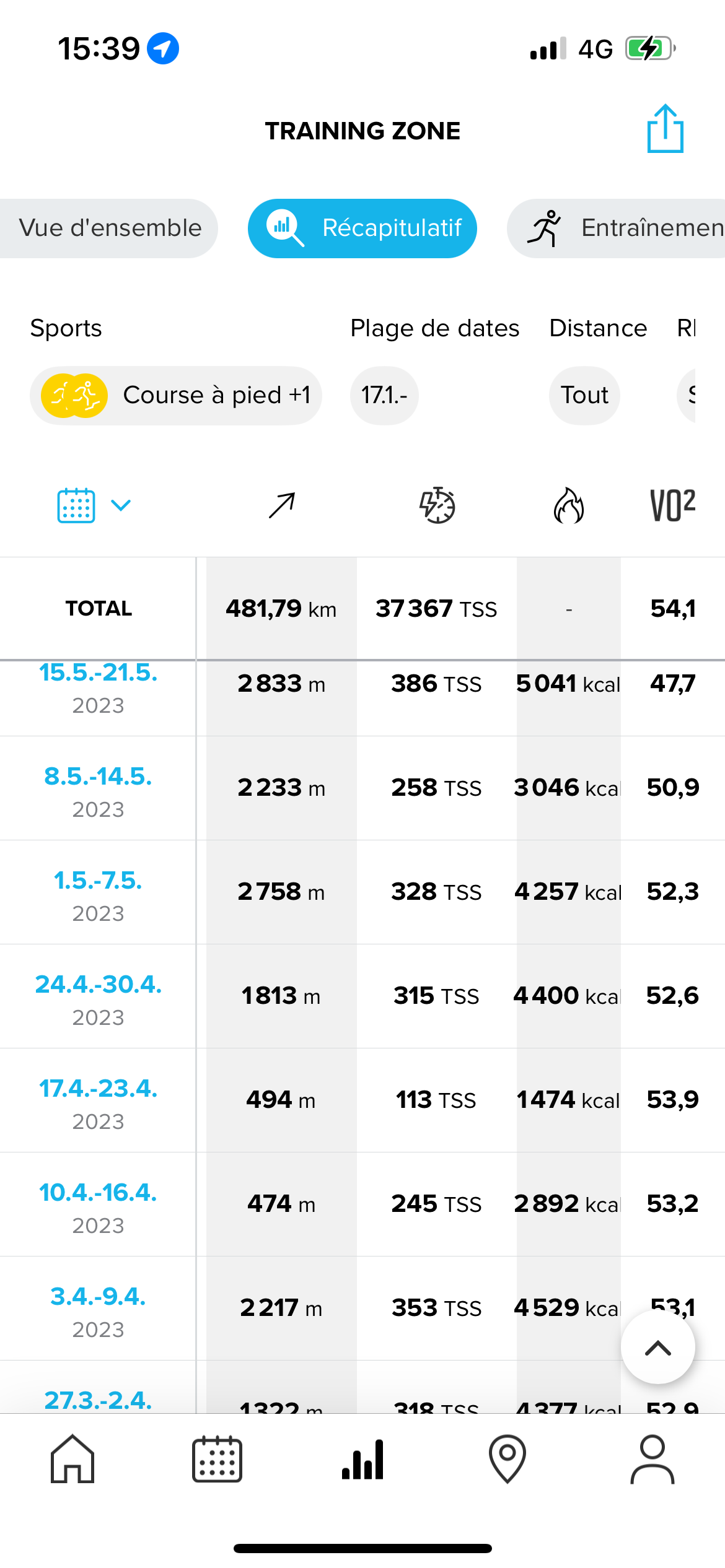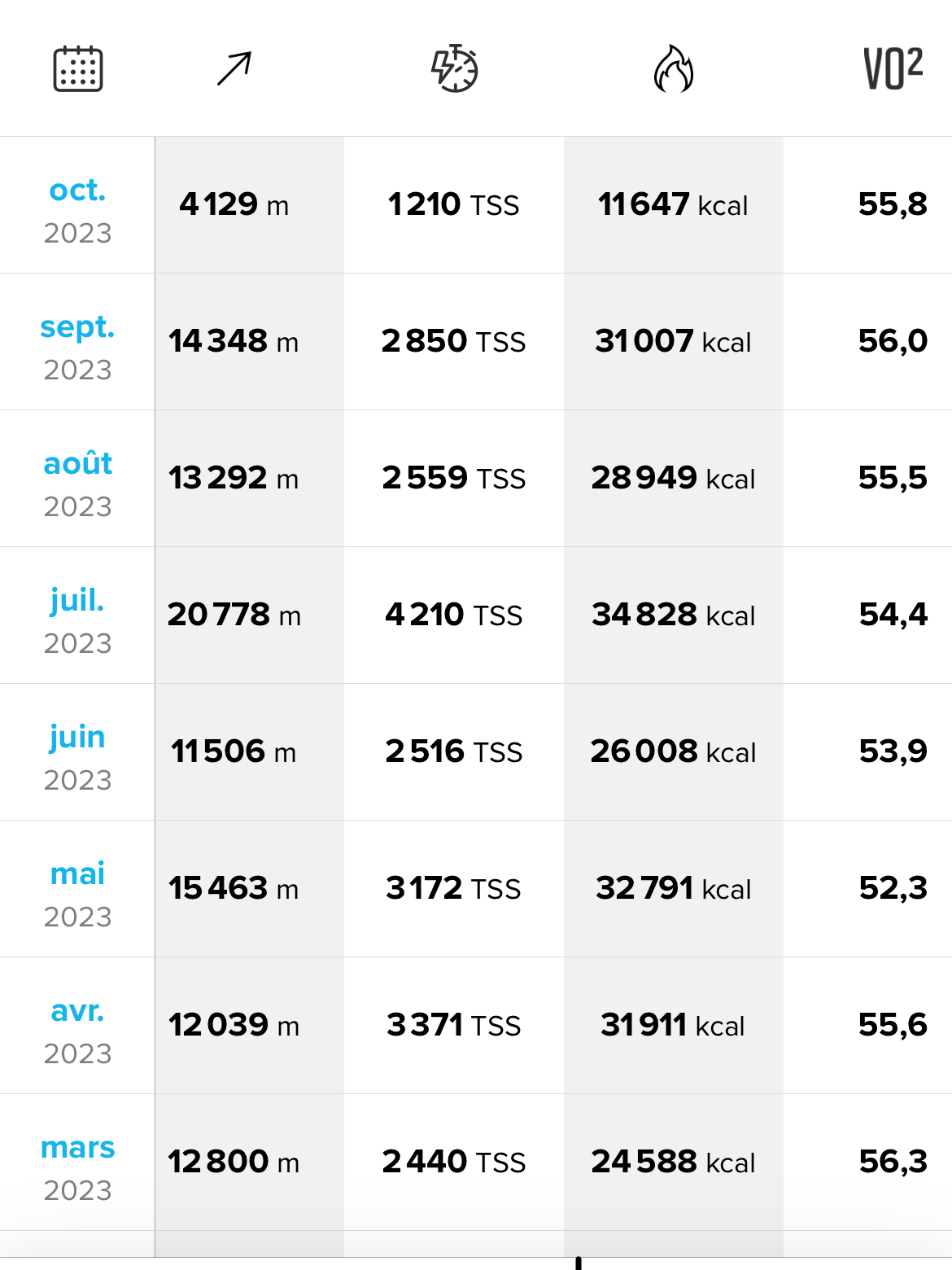What is the problem with Vo2max est on SV?
-
@Frederick-Rochette and the rest?
-
@stromdiddily right - I had not set them in Runalyze. Did it now.Thx!
-
@Egika 40 in Runalyse and 43 in Suunto. I change it so that is the same now (43).
Honestly, I don’t think it’s going to make much difference. The Vo2Max estimate seems to be totally stuck. There’s been no fluctuation (or very little) since I’ve had the SV. What’s more, on Runalyse I have a different estimate after each of my outings, which corresponds well to my state of fitness/performance.
I’m going to wait for the next update and if it doesn’t change I’m going to send it back to Suunto for repair because this is absolutely not normal. -
@Frederick-Rochette
I just learned you can set the 5 zones in Runalyze in “configuration - sport types”Regarding the “stuck” values:
I found that the watch just keeps the old value, if data collected was not enough for a new calculation.
With the FirstBeat algo, the bars were set pretty high regarding data quality. That refers to GPS quality, HR data quality and also the activity needs to cover low to high intensity.I strongly recommend to check again after the November update, as this is not a defective watch, it is just how the FirstBeat calculation works. Suunto chose to abandon these black box algorithms for a good reason…
-
@Egika But why did it work so well with my Suunto 9 Peak?
-
@Frederick-Rochette that is a good question… It would probably require digging into the JSON or FIT files of your individual activities…
-
@Egika could someone here help me look at this?
-
@Egika ooooooh you said November

-
I see that my vo2 max differs when on the mill or when running on the street. On the mill it is a higher than on the street
-
@Frederick-Rochette The ‘‘problem’’ with VO2 Max is that you also have to go to the maximum for a correct measurement.
It’s not called VO2 Max(imal) for nothing.If you take a VO2 Max test with a sports doctor, you have to give yourself maximum effort until you really can’t do it anymore, on an increasingly faster treadmill, which is very difficult.
While you run they often also do a lactate test to determine your threshold/lactate heart rate.
If someone’s maximum heart rate is 180bpm, your threshold is probably around 160bpm and then you have to reach or exceed that value during your weekly interval and threshold run.
And then a Suunto watch should give a correct VO2Max value.Running a test in youre Aerobic zone or walking will always give an incorrect value.
-
@Jacobus I completely agree with you and I would like to point out that I do between two and three threshold sessions a week, either on the track or hill sessions, but my Vo2 Max is always 51.9… so?
-
@Frederick-Rochette so, most likely as stated above: the FirstBeat algo did not like your workout enough to update VO2max…

-
@Egika However, I had a different data almost every time I went out with my S9P, so I don’t understand what’s going on. In any case, no one here is able to find me a solution, just give me generalities and try to show me that I’m using my watch incorrectly.
However, it seems obvious that there is a problem of estimation with this SV.
Am I the only one to have identical data after each run or do you have different data, even with very little difference? -
@Frederick-Rochette said in What is the problem with Vo2max est on SV?:
@Egika However, I had a different data almost every time I went out with my S9P, so I don’t understand what’s going on. In any case, no one here is able to find me a solution, just give me generalities and try to show me that I’m using my watch incorrectly.
However, it seems obvious that there is a problem of estimation with this SV.
Am I the only one to have identical data after each run or do you have different data, even with very little difference?While your basic concern is the “stuck” value, I think those generalities make sense to discuss anyway. Some very good remarks regarding VO2max in this thread

Regarding your identical values question: Yes, I have those as well sometimes. That’s what I meant in my comment above:
“Regarding the “stuck” values:
I found that the watch just keeps the old value, if data collected was not enough for a new calculation.”
It is not your individual watch, but a systematic thing.
For me, the values are not always stuck though. That’s why I suspect the FirstBeat algorithm to not accept every workout. But you are right. It’s just educated guessing here. -
@Frederick-Rochette Ihave also a Vertical and with me the data changes a little bit every time i completed a training, it is not stuck as you can see.
When i am training for a marathon the value wil rise bij maby two or tree points or so image url)
image url) -
@Jacobus stuck for me…

-
Mine is also changing.

-
@isazi and before with my s9P…

-
@Frederick-Rochette you’ll get a new VO2max algorithm in few weeks for what I heard.
-
Seems to work for me. vo2max can be improved, of course, but you don’t change it a lot easily or quickly. It’s a long term work.
Large drop for me in may (S9B=>SV switch), and then it progressivly came back to my « average values ».
